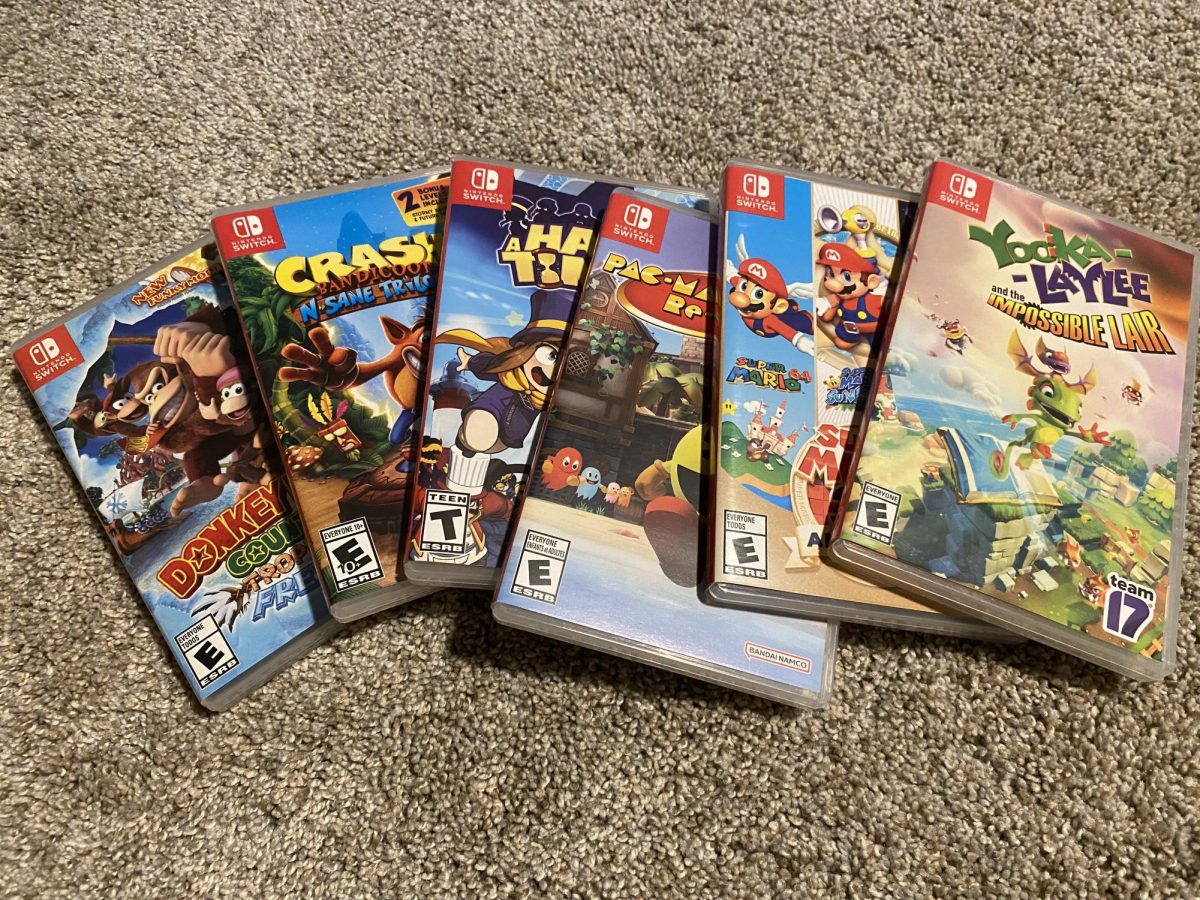The video game industry has blossomed into something that would have been inconceivable to its pioneers back in the 1970s. Games have gotten so lengthy, immersive and complex that the medium stands as a pillar of modern storytelling. With this progress, however, something has been overlooked. Though not completely lost, an art born out of the early days of the industry has fallen by the wayside: the beauty of simple, linear, level-based games.
Back in the early 1980s, the days of the NES and Atari 2700, video games could hardly be anything but simple and linear. The most popular games of the time, such as “Super Mario Bros.,” “Duck Hunt” and “Pac-Man” were either arcade-like games that featured one basic level with various levels of difficulty; or goal-based games that ended when a player moved the character to the right side of the screen and jumped over enough enemies.
There were some more open-ended titles, such as the first entries in “The Legend of Zelda” and “Metroid” series, but it is easy to see why these games are not viewed with a fraction of the fondness that the others listed above are. They were incredibly ambitious, which is very admirable, but the technology of the time forced them to be confusing and brutal experiences that not many players got much enjoyment out of.
When games eventually evolved to the point that they could store more data, accommodate more complicated actions and even display 3D visuals, gaming got more complicated. Open worlds, side-quests, branching paths and unlockable skills are just a few of the features that are possible nowadays.
While I’m certainly glad these additions have been made and that games can be more complicated, I think complexity is more of a stylistic choice rather than a necessity for all games.
Though in-depth games are a wonderful addition, their introduction has largely overshadowed the aforementioned simple linear games that have not at all lost their charm. Their structure surrounding short levels makes them incredibly easy to play in short bursts with no commitment. If someone picks up a “Crash Bandicoot” game for the first time, they certainly won’t master it right away, but they will most likely understand the core gameplay almost instantly.
Similarly, returning to one’s own copy of “Sonic Mania” should not cause any confusion for a player whose skills have become rusty with time. There’s no need to remember where you left off, no fumbling through menus that could never be committed to muscle memory. The only thing that needs to be understood is the control of the character which, in most cases, consists of running, jumping and perhaps an attack, but not much else.
Modern adventure or role-playing games can be fun to learn inside and out, but can be daunting to first-time players. That’s why it’s so important for more linear games such as the classic “Super Mario” platformers to remain on the market. They can be easily understood by the vast majority of people, allowing for more players to have more fun with them.
The ease with which these games can be understood does not make them boring for experienced players. In fact, their surface-level simplicity often makes them incredibly fun and difficult for more seasoned fans to master, leading to many impressive speedruns. The best part is that the skill is entirely your own. The characters don’t level up or gain upgrades, one’s success is reliant wholly upon one’s own abilities.
While linear platformers are by no means the future of gaming, they make up an integral part of it that should not be forgotten or overlooked. With skill-based level design and gameplay that can be understood by the most casual of fans, their simplicity is truly their greatest strength.




Jack K. • Sep 12, 2024 at 3:22 pm
I love simple games like the ones that the author is talking about, but I think that there’s something to be said about games that can bridge between being simple and complicated at the same time, too. I loved playing Minecraft when I was a younger kid, and the little kids that I know now love playing Minecraft too. It’s fundamentally not that complicated, and I know that I’ve probably spent hundreds, if not thousands, of hours playing the game over my life. But all the simple mechanics of the game are set up in such a way that the game can continue to be fun no matter how old or experienced you are at the game- people are building working computers, entire cities, and creative works that I couldn’t have even imagined when I first picked up the game. Because of that same open-endedness, the game has endless modding potential and the entire genres that people have created, just by providing that little opening for their own creativity, is mind-boggling.
I personally credit Minecraft for getting me interested in some, admittedly, really complicated games, like Dwarf Fortress. But it’s hard to find a person, or a video game, that Minecraft hasn’t influenced in some way, and that’s because it manages to be simple.